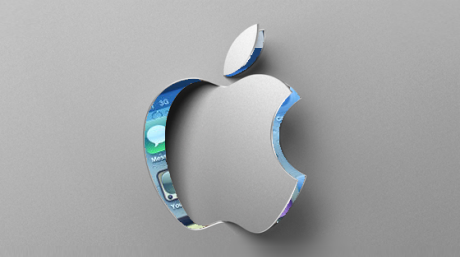If Chromebooks succeed, Mac OS X could be the hardest hit

Mac OS X never took off in the same way that Windows did. But I suspect that Google Chromebooks will either push users away from Mac OS X towards iOS devices, or have a stranger effect: bring iOS users of the iPad and iPhone closer to its Mac OS X sibling.
With three major desktop operating systems -- Windows, Mac OS X and the million variants of Linux -- there will soon be another, in a manner of speaking.
Google Chrome OS will be pre-installed and supported by Chromebooks -- dedicated light hardware which will run the cloud-based feature set of the operating system.
But while the vast gap in market share between Windows and Mac OS X has slowly narrowed over the last three or four years, mobile operating systems have had their time to shine.
But as the majority now access web services and sites over other applications pre-installed on local machines, Apple could have most to lose in the desktop operating system space, by reducing its already little by comparison user base to lesser-capable devices like the Chromebook.

What we already know from the statistics:
Windows XP's share has been rapidly declining since the launch of Windows 7. With that, Windows 7's share has been rapidly increasing. An estimated overtake of Windows XP will be in October 2011, according to StatCounter trends.
Mac OS X users have remained consistently low by comparison at around 8%, but the user share has risen ever so slightly in the past year.
Android devices are becoming increasingly popular with nearly double the users it had this time last year. iOS devices are only second to Symbian, yet users figures have peaked and troughed in the past year.
Android devices are expected to overtake iOS devices at either Apple's lowest ebb in August 2011 or at its highest point, around Christmas 2011, in line with StatCounter figures. However, just after Christmas gone by, analysts estimated the stretch of time could be far greater, estimating late 2012 to early 2013.
Therefore it is arguable that iOS is by far used more than Mac OS X. This naturally is a logical assumption as many Mac devices are not as portable as the iPhone or the iPad. One is more likely to carry their iPhone with them far more regularly than their MacBook, for example.
It is not to say that Apple will be harmed by this, however. Though I expect, if this theory rings true, in that Apple suffers as a result in the desktop operating system arena, then it is quite likely that the booming sales of iOS devices could even out the balance across the board.
Apple, for now, holds the dominance in the tablet market. Because of Android's open source nature, it can be applied and ported to almost any device, whereas iOS relies on its iPad or iPhone technology to work; automatically excluding a large proportion of younger, less socio-economically viable users.
There are two arguments though which could play in Apple's favour.
Firstly: though Android devices have yet to overtake iOS devices, Google is already off to good stead by having an open-source, hackable and highly malleable operating system for both tablets and phones. However, iOS is inherently inter-connected with Mac-running devices, and offers fantastic interoperability with other Apple products. Android devices may not be as functional with Chromebooks.
Secondly: because Chrome OS will be all but entirely cloud based, it will offer little non-web functionality. Desktop operating systems will still be needed to 'maintain' business, productivity and for use of applications. Chrome OS may well have web-based applications, but Chromebooks will be for mostly personal, rather than productive means.
It is a sit-and-wait game to play, and how it will pan out will be interesting to see. The market share statistics will either change rapidly, with Mac OS X starting to lose out to its iOS sister and competing tablet and phone operating systems like BlackBerry's future QNX operating system and Google Android.
Then again, it could easily survive and Chromebooks could flop like a dead weight.
Related content:
- Can you live in the Chromebook cloud?
- $20 a month 'student' Google Chrome laptop to be announced today?
- Chrome OS: More questions than answers?
- The history and future of Chrome OS
- Open letter to Google: Chrome OS is already redundant
- Google: Pot, kettle, black; Chrome OS and a potential antitrust
- Could Chrome OS revive slumping netbook numbers?
- Can I be an IE, Firefox, and Chrome guy all at once?